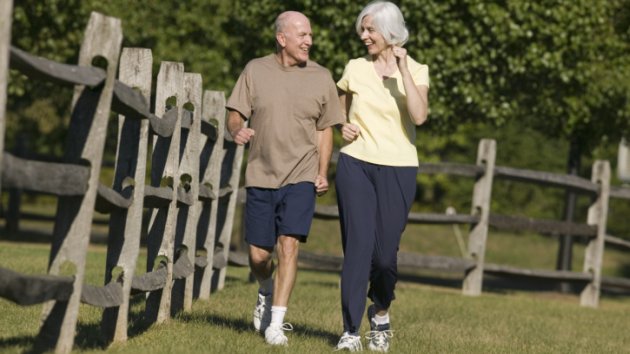
A Study Finds That ‘Physical Activity’ Results To Better Memory In Older Adults
A new study on the physical activities of the older adults has found that they perform physical activities better on the memory tasks than those who are comparatively inactive. People who do walking or jogging have better memory power says the researchers. The study, led by the Boston University Medical Center, examines the relationship between physical activity, memory, and cognition in young and old adults.
For the research, the team of 29 young adults between ages 18 to 31 years old, as well as and 31 older adults who are 55 to 82 years old. The participants were asked to wear a small device, called an ActiGraph, which recorded information including how many steps each took, how vigorous the steps were and how much time it involved. Participants also completed neuropsychological testing to assess their memory, planning, and problem-solving abilities.

The researchers said that these findings demonstrated that the effects of physical activity extend to long-term memory, the same type of memory that is negatively impacted by aging and neurodegenerative dementias such as Alzheimer’s disease. In addition to standardized neuropsychological tasks of executive function and long-term memory, participants engaged in a laboratory task in which they had to learn face-name associations.
“Knowing that a lack of physical activity may negatively impact one’s memory abilities will be an additional piece of information to motivate folks to stay more active,” says the new study’s corresponding author Scott Hayes, Ph.D., assistant professor of psychiatry at Boston University School of Medicine. Staying physically active can take a variety of forms, from formal exercise programs to small changes, such as walking or taking the stairs, the authors say.
In young adults, the number of steps taken was not associated with memory performance. Everyone knows that physical activity is a critical component to ward off obesity and cardiovascular-related disease, according to the researchers. They note, that more research is needed to explore the specific mechanisms of how physical activity may positively impact brain structure and function.
There is also need to clarify the impact of specific exercise programs or dose of exercise on a range of cognitive functions, Hayes points out.